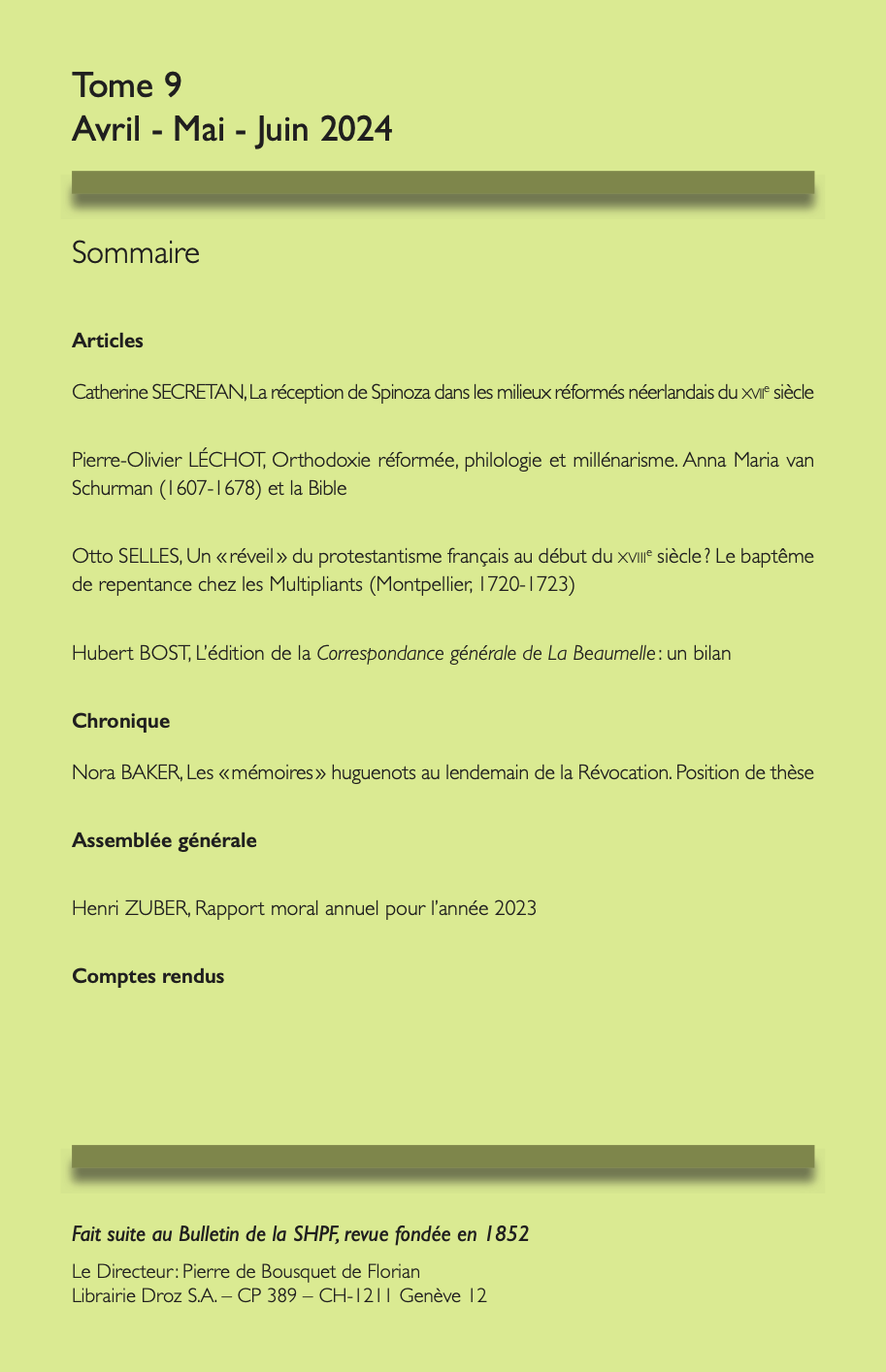Un « réveil » du protestantisme français au début du XVIIIe siècle ?
Le baptême de repentance chez les Multipliants (Montpellier, 1720-1723)
Abstract
Protestantism or Catholicism? Judaism or Calvinism? Representatives of the king, both in Versailles and in Montpellier, were unable to understand the group assembled in Anne Robert’s house. Guided by three priests, a prophetess, and a pastor, these Multipliers, as they were called, celebrated a baptism of repentance through which participants received a new “Hebrew” name and were able to enter the Résidu, their worship space. Long denigrated as a strange prophetic sect, the Multipliers represent an attempt to reestablish Protestantism in France after the Revocation of the Edict of Nantes and the Camisard War. In this regard, the movement could be seen as an “awakening”, a movement of spiritual renewal based on the baptism of repentance (individual conversion) and the creation of a new ecclesiastical structure (led by lay people). In contrast to the Churches of the Desert, the Multipliers created a new Protestantism, faithful to their Huguenot past but independent of Calvinist traditions and Reformed institutions.

